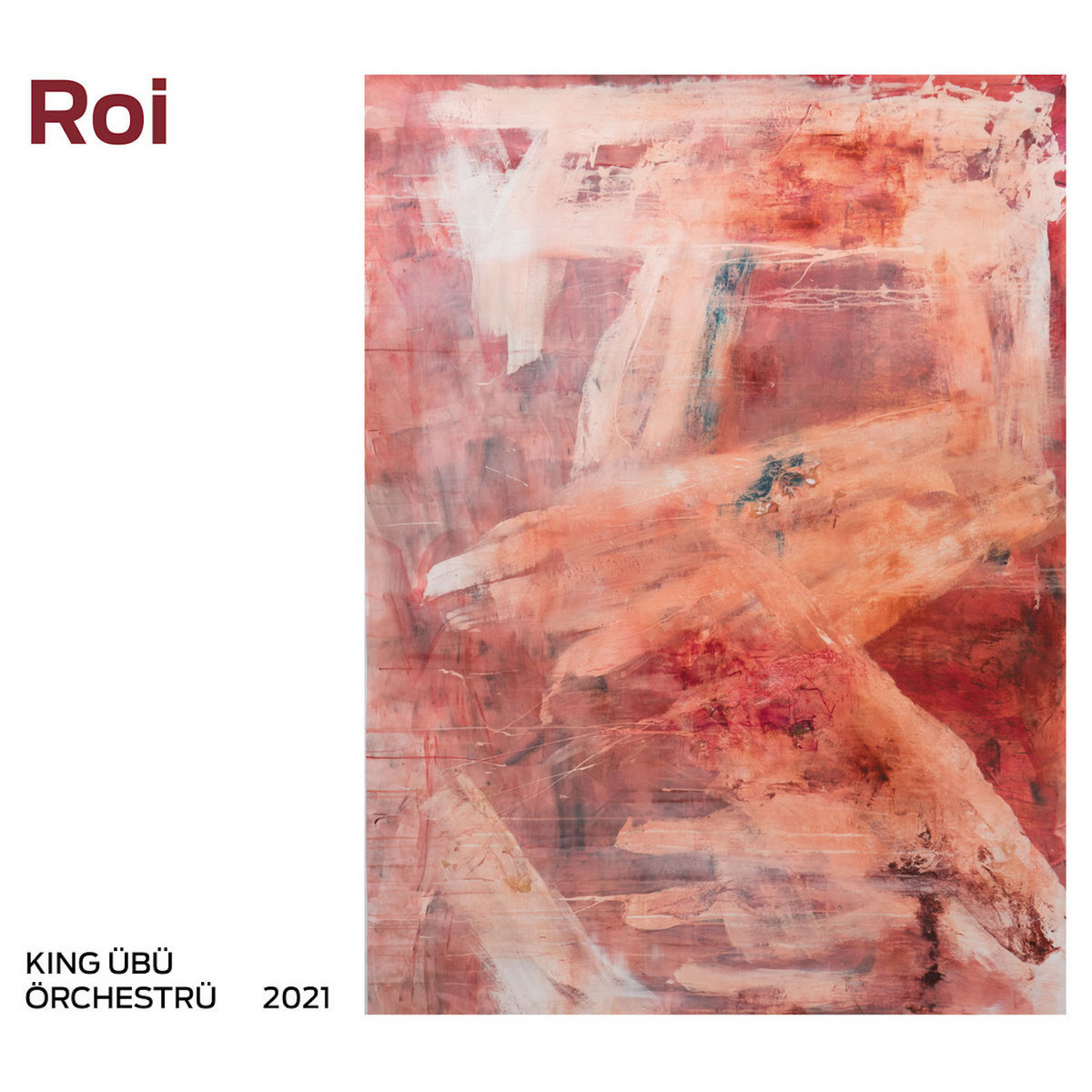
Musician:
Label:
FMRAvailable Formats:
CD
Description
“Imagine lying on the ground deep in the woods at night listening to the sounds of the environment. Everything seems relatively quiet. Then there’s a bang, as if a starting shot was fired. And suddenly you hear all the sounds of the forest as if through a monstrous amplifier: wild boars stir up the ground, owls hoot, a deer roars, the anthill hums busily, there’s a rustling in the undergrowth, the wind sweeps through the trees, drops of water fall from the leaves, the wood crunches ominously, a departing thunderstorm booms from the distance and a little further away you think you hear a mad walker ranting to himself. It’s as if a text by the expressionist poet Georg Trakl had been brought to life. However, that’s exactly how the beginning of the King Übü Örchestrü concert in Bonn sounds.
The Übü was founded around 1983, a 10-piece ensemble that imagined itself as a chamber music counterpart to the large wind-orientated free jazz formations such as the Globe Unity Orchestra or the ICP Orchestra. It was intended to be organized on a grassroots level. Until 2003, the ensemble existed in changing lineups. Now Erhard Hirt, guitarist and founding member, has reunited the original band after almost 20 years. The only new members are Stefan Keune on saxophone and Matthias Muche on trombone. But even though they have known each other well, it wasn’t sure if the old magic could be recreated. For Übü is about the presence of the orchestra as a whole (or at least large parts of it), it’s less about solo excursions. The project is characterized by broad sound surfaces that are shifted back and forth in a very variable way. In the 2021 relaunch, however, the silence that was characteristic of the early recordings is no longer as central as back then; now things can be sometimes very wild and loud.
Another basis of the Örchestrü’s approach is free interaction, where freedom means leaving something behind, namely the familiar world. For Übü, freedom means going ahead, to where you don’t know who you are, to where there is something you don’t know, as the French philosopher Anne Dufourmantelle puts it in her text “The Risk of Freedom“. For this, one must be ready for the right moment, for the intensity of the moment in which one becomes alive with neck and crop. Therefore, it’s not the formal unity of the two sets, not the product, that is crucial, but the process of interacting with each other, of free, non-hierarchical communication. Like an ecosystem, the group benefits from each other, responding to what they hear, providing complementary sounds and textures within the evolving, dynamic improvisations. Nothing is added that is not necessary. Gently, the eleven musicians weave the smallest particles of sound and noise into fragile webs of sound that repeatedly ball up into more violent clusters of sound. This sound is Übü’s secret.
Most musicians subtly expand the sonic spectrum of their instruments beyond the conventional way of playing, e.g. Axel Dörner with his circular breathing produces a series of unusual gurgling, sucking and hissing sounds. Phil Wachsmann uses additional electronics, Erhard Hirt alienates his instrument not only with unconventional plucking and striking techniques but also with the help of a connected laptop, Paul Lytton works on a cornucopia of acoustic sound generating equipment. The result could be described as sonic pointillism, where each artist represents a different timbre, the results being undoubtedly archetypal of the group (and indeed of the specific configuration of the musicians playing).
Without a doubt, the magic still exists. And at the very end, just before the warm applause, it’s also back: the silence in the Dialograum Kreuzung at St. Helena in Bonn.” -Martin Schray, freejazzblog.org
Released in:
2022